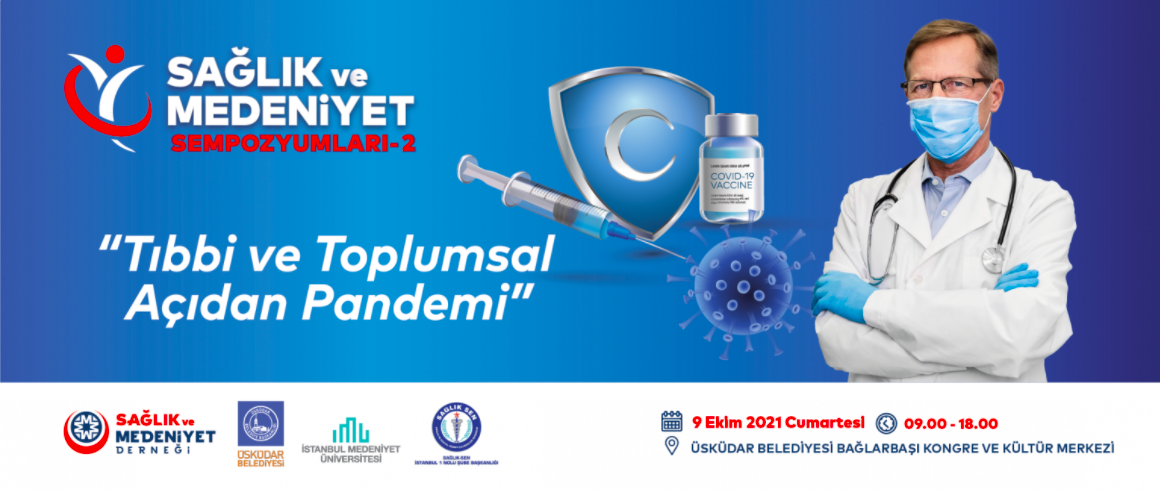The Health and Civilization Symposium titled ‘Medical and Social Pandemic’, jointly organized by IMU Department of Sociology, Health and Civilization Association, Üsküdar Municipality, and Health-Union, was held on Saturday, October 9, 2021, between 09.00-18.00, at Üsküdar Municipality Bağlarbaşı Congress and Culture Center.
During the past two years, the Covid-19 pandemic has caused a crisis in many areas around the world, resulting in the need for a systemic revision. In the symposium held for this purpose, the impact of the pandemic in our country and in the world and the issues it brought to light were discussed with a broad perspective. Speakers consisted of physicians, deontologists, sociologists, lawyers, journalists and writers, all experts in their respective fields.
At the symposium, Res. Asst. Elyesa Koytak of IMU Deparment of Sociology presented his paper titled ‘The Changing Social Position of the Medical Profession during the Pandemic’.
In his study, Koytak dealt with the pandemic issue from a sociological perspective and addressed the question of how the social position of medicine changed in Turkey during the pandemic. Evaluating the social position of physicians before the pandemic, the author expressed his views on the working conditions of medicine, the push of practitioners to be a lower class within the profession in terms of income and status, and the weakening public reputation and image of the profession. However, specialties such as epidemiology, virology, immunology, vaccine studies, infection, which were not known or heard only by name before the pandemic, started to be represented by experts in live broadcasts every evening and there was a large amount of one-way and univocal information and guidance, used by the citizens trying not to catch the disease. In this sense, discourse on the pandemic, which penetrates every moment and corner of life more intensely than the virus, and pandemic management mechanisms have entered our lives from family to working life, from education to culture, to the fate of the fundamental rights and freedoms of the elderly and children. Therefore, as public health and the fight against the disease is defined with the metaphor of war and the healthcare professionals working in the clinic are idealized as tired and unpaid warriors at the front of the struggle, Koytak stated that this situation restores the lost social status of physicians in certain branches and increases their authority.

